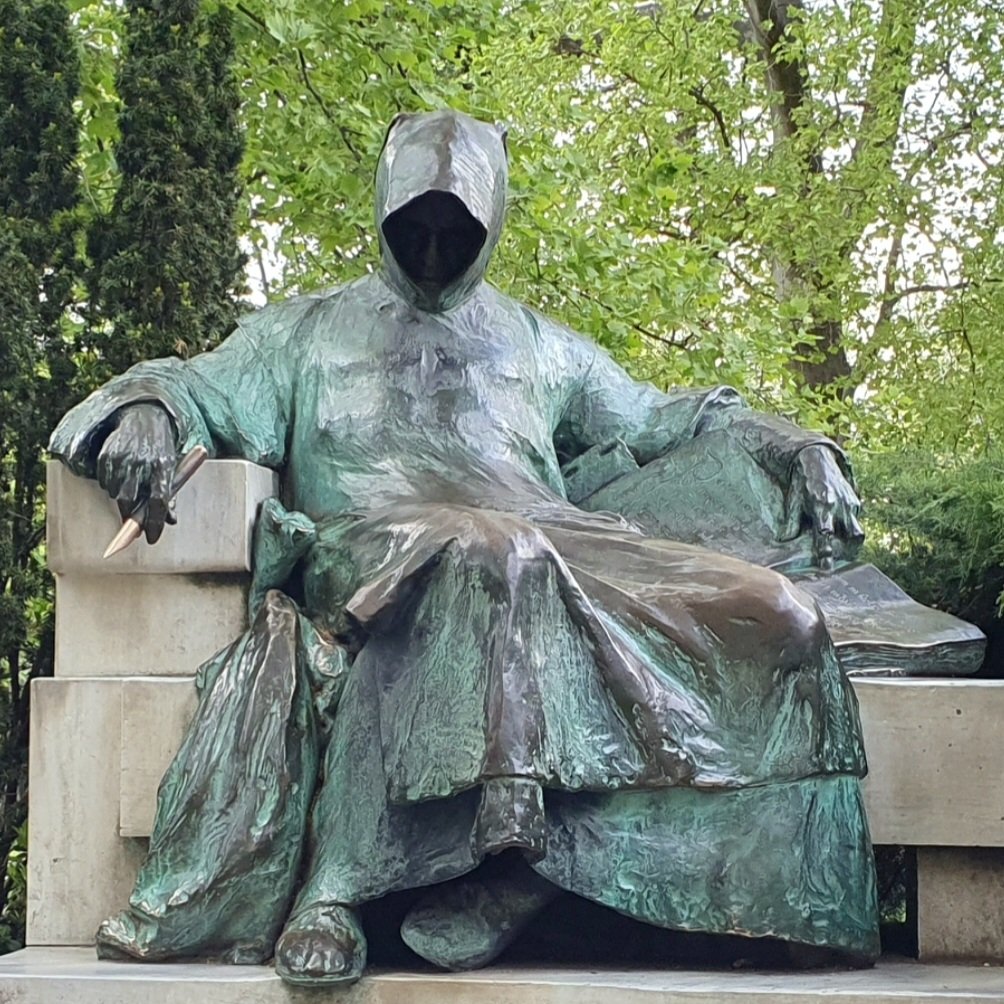We should all be concerned about the future because we will have to spend the rest of our lives here.
Some time ago I wrote an article – It’s relative! – about the disagreement between Socrates and Protagoras concerning the concept of truth. In that article I stated that, according to Socrates, 2+2=4, but according to Protagoras… it depends… I didn’t expect to revisit such a dry subject so soon, but then the entire story of the answer regarding the Jews given by the 3 leaders of MIT and the universities of Harvard and Pennsylvania has erupted in the news… If you don’t know the story, you can search it in the news. But basically, to a direct yes/no question of whether it is allowed on the campuses of these universities to call for the genocide of Jews, the 3 leaders avoided to give a straight answer, citing the fact that it’s a context-dependent decision whether to punish a verbal instigation to genocide.
Protagoras would have been proud to have such disciples… I mean, the 3 leaders have used the concept of the relativity of truth instead of stating their position from a scientific viewpoint. For a politician (or a bureaucrat), what they did was somehow normal, as it’s in the description of the job not to have a spine (politicians channel and embody the opinions of the voting crowd, they never say what they believe or think). But given the fact that the 3 leaders represented scientific universities that act as the keepers of the Socratic method, the entire situation has caused outrage. Yet… this does not come as a surprise, if you know to read the patterns of time(s) and you see how the world is gradually collapsing into the dark ages again…
I am trained as a scientist and I cannot agree with the feedback of the 3 leaders. And it is not because the question involved the Jews. If you replace the word “Jews” with the word “people”, we can reframe the question addressed to the 3 leaders and I kindly ask you to answer for yourself:
Does calling for the genocide of Jews people violate Harvard’s/MIT’s/Penn’s rules of bullying and harassment?
In other words, if I’m calling to kill you because you are in a certain way (have a certain religion, race, ethnicity or sexual orientation, etc.), is this harassment or not?
I would say it’s incitement to violence. I would say you’re provoking others to kill me and you are trying to intimidate me. But what do YOU think? Use your common-sense!
In my case, being psychiatrist, I am used to be threatened by my patients. I was threatened with murder on several occasions. If you are able to feel empathy, could you please put yourself in my place and see/feel what I’m feeling?! How would it be for you to hear not one person but an entire mob calling for your murder?! Can you feel it?! I assure you that I feel uncomfortable every time a patient is telling me that, when he’s going to leave the hospital, he’s going to come after me and kill me. Uncomfortable is an understatement, of course. I can never know if a patient, having stopped his medication and in an advanced state of psychosis, won’t come to cut my throat or stab me. It is completely out of my control and I must accept that this is a real possibility in my job. But there is a difference between a psychiatric patient (who is mentally unwell because he has a disorder) and a mob of collectively-proclaimed sane (healthy) people, calling for mass-murder. And more, there is a difference between a psychiatrist who is used to people threatening and insulting him fairly often, and a member of the general public who should not go through this (he didn’t “sign” for this, he is not paid to be insulted). What would this society become if anybody would be free to insult the others and also call for their killing!?!
Yet, this is a mess of our own making… Because what the 3 leaders have said is actually… correct… We are advocating the right of free-speech, and some of us are “free-speech absolutists”. The problem with free-speech is that, when used in the absolute mode (as a form of anarchic/radical freedom), it gives the right to say everything about everyone. And everything includes also insults and calls for genocide. Also, everyone includes people from all the possible ethnic, sexual or racial backgrounds. One can make a case that free-speech gives one the right to say anything. Also, one can also make a case that words are not deeds or facts; we can say anything as long as we don’t exaggerate and we don’t act-out what we’re saying. And this is exactly what the 3 leaders said (watch the entire video, it is available online): it depends on the context, that is, on the intensity of what’s being said and on the behavior that may or may not follow those threats. In other words, according to the 3 leaders, we are free to say everything with measure, but we are not free to persist/persevere or go to action. To put it simple, I am allowed to say that I want to kill you a couple of times, but if I insist and say it repeatedly, or if I act-out this physically, I must face consequences.
Now, these 3 leaders have a very low emotional intelligence, something astonishing given their positions as leaders of the 3 famous American universities.
First, can you imagine the fear of someone being threatened for the first time with genocide/murder? Do you think that there is an emotional difference between being threatened once or repeatedly, several times? If you have the empathy and the emotional intelligence of a stone, you might think that the emotion of fear has a quantitative quality (it increases with the number of people threatening you), which is false. You are afraid no matter how many times you are threatened because the emotions are qualitative (you have them or not, they are not incremental depending on setting; thoughts are, but I digress).
Second, if you are smart and you know you represent the elite of the American universities, you know that you broadcast a strong signal (or message) to everyone when you aren’t clear in your statements (you avoid) and when you are incompetent at the leadership level. In other words, if Harvard and MIT aren’t able to show leadership soft-skills, what should a smaller university say or do?!? And what about the example you give to your students, to whom you are a mentor and a model of morality?!? Is tolerance up for debate?!? Is personal security on your campuses up for debate?!?
And another question: Did those students choose to be born Jews? Could they choose in what ethnicity, in what family, they were born? If they couldn’t, who do you think you are so as to emit judgements about them?!? And about the contexts in which they should be protected or not?!?
The tragedy of free-speech absolutists is that they are in an extreme. And the extremes aren’t good. You are not free to say everything you want, without filter. You have to have a filter. And this filter is called empathy. Just as you don’t say everything to your friends or family or loved ones, you also need to measure your words when in the public domain. It’s called being polite, which is opposed to harsh sincerity. Perhaps each of us has had a moment when we wanted our loved ones (or our neighbor, or co-workers or the boss) to be dead or being killed, but we refrained from loudly calling for their genocide. This means to have common-sense and to be a sensible human being… Free-speech functions well when it is nuanced, when it is limited as soon as it becomes offensive versus the others. That’s why social media is moderated, that’s why heated public debates often have a skilled mediator.
Now, I would like to focus on this statement: “it depends on the context”. In a Western society, which is based on agreement and compromise, as opposed to an authoritarian society (where the Power is always right and rules tyrannically, without negotiation), we need to decide if the answer to the question about inciting to genocide is relative or absolute. In other words, we need to decide if it depends on context or not.
If it’s open to interpretation and depends on context, we open the door to other problems and we are slowly becoming authoritarian, because we will be tempted to negotiate the value of a person (if that person is worth killing or not, depending on our tyrannical estimation). This is exceptionally dangerous and, since it involves universities (the future, where the next generation is trained), the prospect is bleak.
In my opinion, this was truly a “yes or no” question, despite the aggressive politician who questioned the 3 leaders (who likely had her own political agenda). The question did not accept a No answer, because that would be the beginning of anarchy. The question had, in my opinion, only one correct answer: Yes. And I don’t say that any incitement to violence should be punished because it involves specifically the Jews or because I agree with the politician asking the questions. I say that calling for genocide must be punished because it is inhuman no to.


